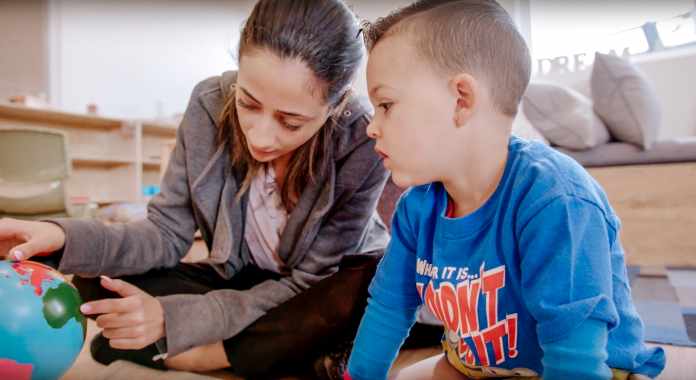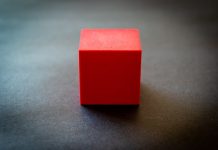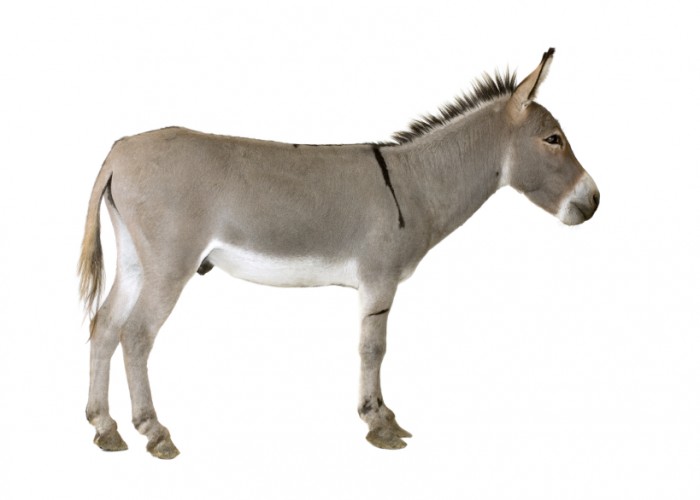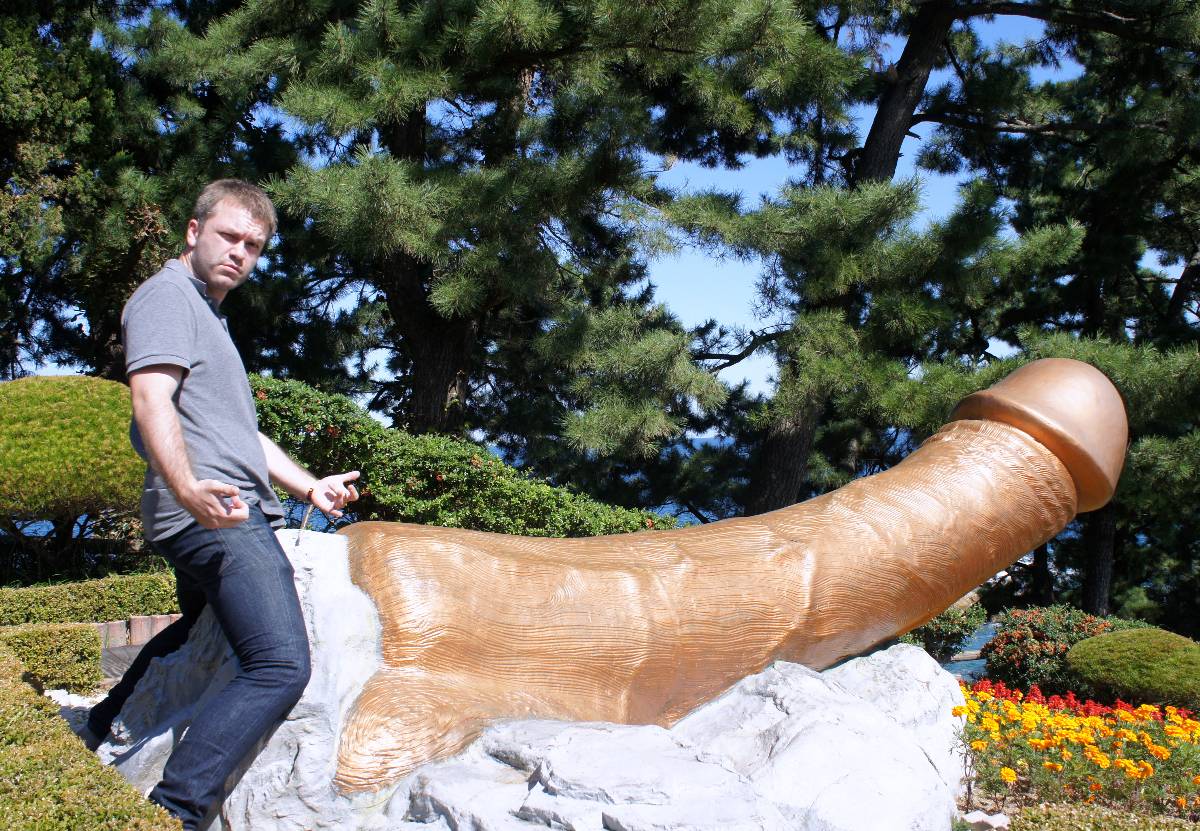Montessori Academy offers a compassionate early education and preschool program for children of age group 0 – 6 years. It runs in a long daycare format. The ultimate aim of the academy is to prepare the children for school and life. It offers an intelligible learning environment, philosophy teaching, and Montessori material. Each child has a unique learning ability. The learning experiences serve the individual needs with the same thought. It delivers the fabric, keeping in mind the interests of the children. To learn more about the Montessori Academy childcare program, read this post until the end.
Table of Contents
History
Montessori Academy’s roots belong to a family’s quest for high-quality child care. In this journey, they learned the advantages of Montessori education. After that, they found Australia’s leading Montessori Child Care Community.
Evolution
The Montessori Kindergarten’s owners approached Colette and Charles in 1999 to purchase the service. They enthusiastically accepted the school and confidently carried on Doctor Maria Montessori’s educational legacy in Sydney, Australia. After that, they rebranded the service in 2000, retaining the authentic Montessori curriculum and staff.
They noticed the shortage of Montessori preschools in Australia after several years of success and an increasing reputation for quality. As a result, they devised a policy to ensure that Montessori is open to as many children as possible.
Over 17 years, Colette and Charles established more than 20 Montessori academies across Australia. There are three campuses in Shanghai and China. At the core of Montessori Academy’s growth strategy is ‘Excellence in education.’ This guiding ethos continues to inform Montessori Academy’s plans for expansion, both within Australia and overseas.
Philosophy Of The Montessori Academy
The Montessori theory focuses on assisting a child’s full growth as they mature from infancy to adulthood. It adopts a broad view of education as a life-enhancing method. Montessori teaches from the viewpoint that awareness is not learned passively through listening to words. Instead, interactions with the environment can help in its attainment.
Therefore, the Montessori approach uses a prepared classroom to inspire children towards a life-long love of learning. Qualities of the ready classroom include structure, order, freedom of movement, and freedom of choice. Within this nurturing space, children learn through hands-on experiences. Especially relevant are the beautifully made Montessori learning materials that children work with to make independent learning discoveries. The children receive guidance in their learning by the Montessori teachers, who act as the link between the children and the prepared environment.
The Montessori Education Program
The Education Curriculum for Babies, Toddlers, and Preschoolers is child-centered, emphasizing providing students with the best learning atmosphere, materials, and instruction to meet their full potential. Classrooms are beautiful and offer better learning. They have organized subject areas on the basis of age, interests, and development stage. The curriculum area allows children to freely explore and learn through hands-on writing.
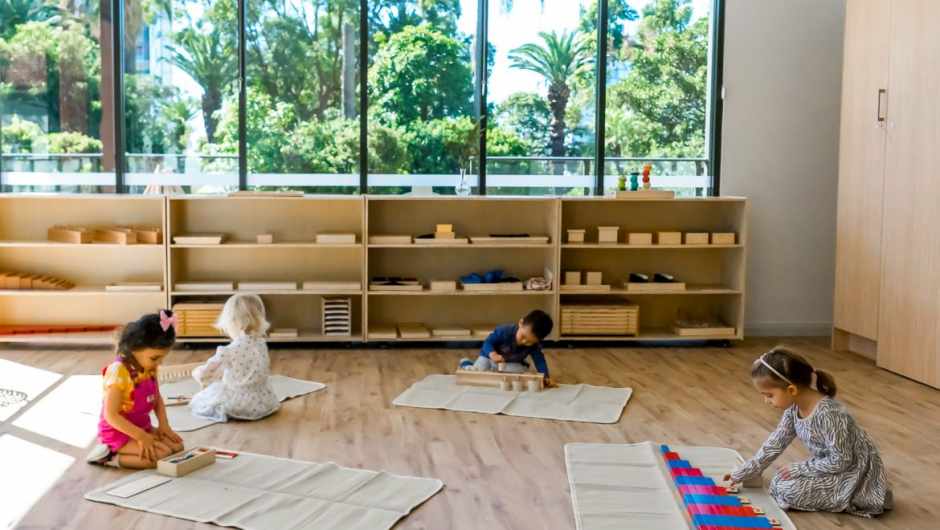
The teachers observe and guide each student according to their developmental needs and interests. Children gain intense focus and solid academic foundations from taking the classes. Besides, they also develop intrinsic motivation, social skills, and environmental knowledge from the well-thought-out classes. They learn through the Montessori Education Program.
Montessori Infant Program
Kids under the age of two have a remarkable ability to absorb knowledge from their surroundings. The Montessori Infants Program structure helps to meet the developmental needs of young children. Children learn synchronization of movement, good social skills, and vocabulary. Besides, they also learn introductory mathematical concepts in the Montessori Infant Curriculum. It prepares them for the Toddler and Preschool Program.
The most important time in development, according to educators and psychologists, is from birth to age six. Engaging in a high-quality early childhood program or admitting your child to a pre-prep campus in Singapore has long-term health and educational benefits. It also helps kids get ready for school and beyond.
Montessori Academy For Disabled Students
The Academy does cater to children with diverse abilities. Its education principles design help children with additional needs achieve their full potential. Montessori is suitable for every child. However, children with behavioral issues may find its structured learning environment difficult.
The Montessori Curriculum
The Montessori Curriculum is integrated with the Australian Government’s Early Years Learning System. They run together in the Montessori Academy’s holistic curriculum (EYLF). Practical Life, Sensorial, Arithmetic, Language, and Culture are five primary learning areas by the Montessori Curriculum.
Each curriculum area includes a carefully chosen Montessori Materials set that encourages information retention through repetition and practice. When children advance through the Montessori Program, the materials become more complex in sequential order.
The EYLF complements the Montessori Program by offering excellent health foundations for children. It allows them to become confident and engaged in learning while retaining a clear sense of identity, wellbeing and belonging. Montessori Academy offers comprehensive early childhood education and care. Its curriculum nurtures children’s social, mental, physical, spiritual, and cognitive growth in this way.
Montessori Learning Materials
The foundation of the Montessori Curriculum is specially designed learning tools known as Montessori Materials. Montessori Materials are sensory-based learning tools designed to provide children with opportunities to discover learning through repetition and practice. The devices are lovely and convenient to use, leading children through the Montessori Program as it becomes more complicated. The Montessori Instructor introduces children to the Montessori Materials by submitting the materials to them and then inviting them to deal on them individually.
The child gets the Montessori Materials in sequence from most comfortable to most challenging. This precise sequence provides children with a logical pathway to learning that promotes the gradual layering of knowledge to establish foundational understanding. As Doctor Maria Montessori stated: “Nothing goes into the mind that does not first go through the hands.”
Community Partnerships
Community collaborations are crucial in educating our students about their links to the community and the rest of the world. This idea is known as “cosmic education” in Montessori. Cosmic education aims to instill in children a sense of interdependence with all.
The early learning programs of the Montessori Academy act as a crucial link to the broader community. They give students, staff, and families better access to relevant knowledge and services support. The support networks work by establishing community partnerships.
Children develop a sense of belonging, personal identity, and connection to the world around them. These partnerships help Montessori Academy see community collaborations as an integral part of our educational services. Besides, it also elaborates on how we give back to the communities where we work and live.
Takeaway!
If you are planning to move your child to the Montessori Academy, this post can provide you all the required information about the academy. For more educational centers, jump to our blog section.

